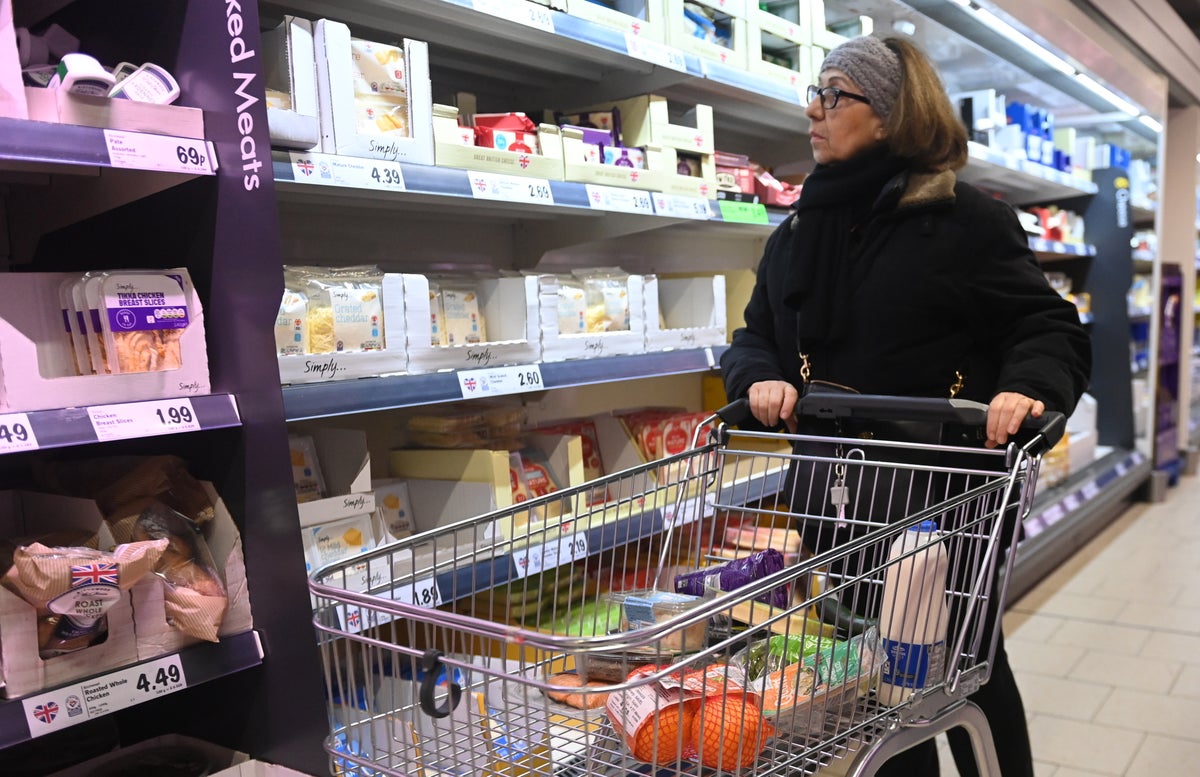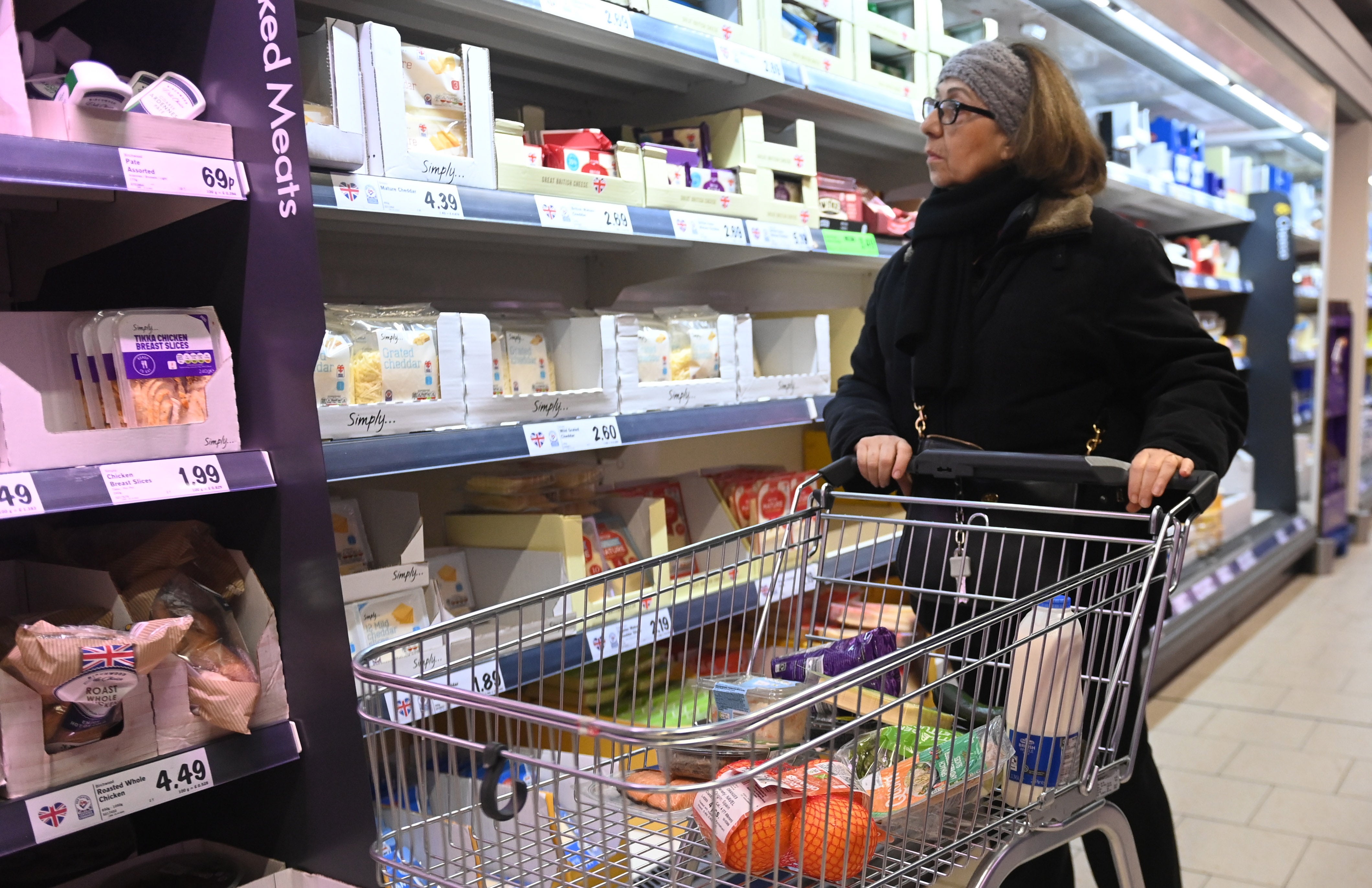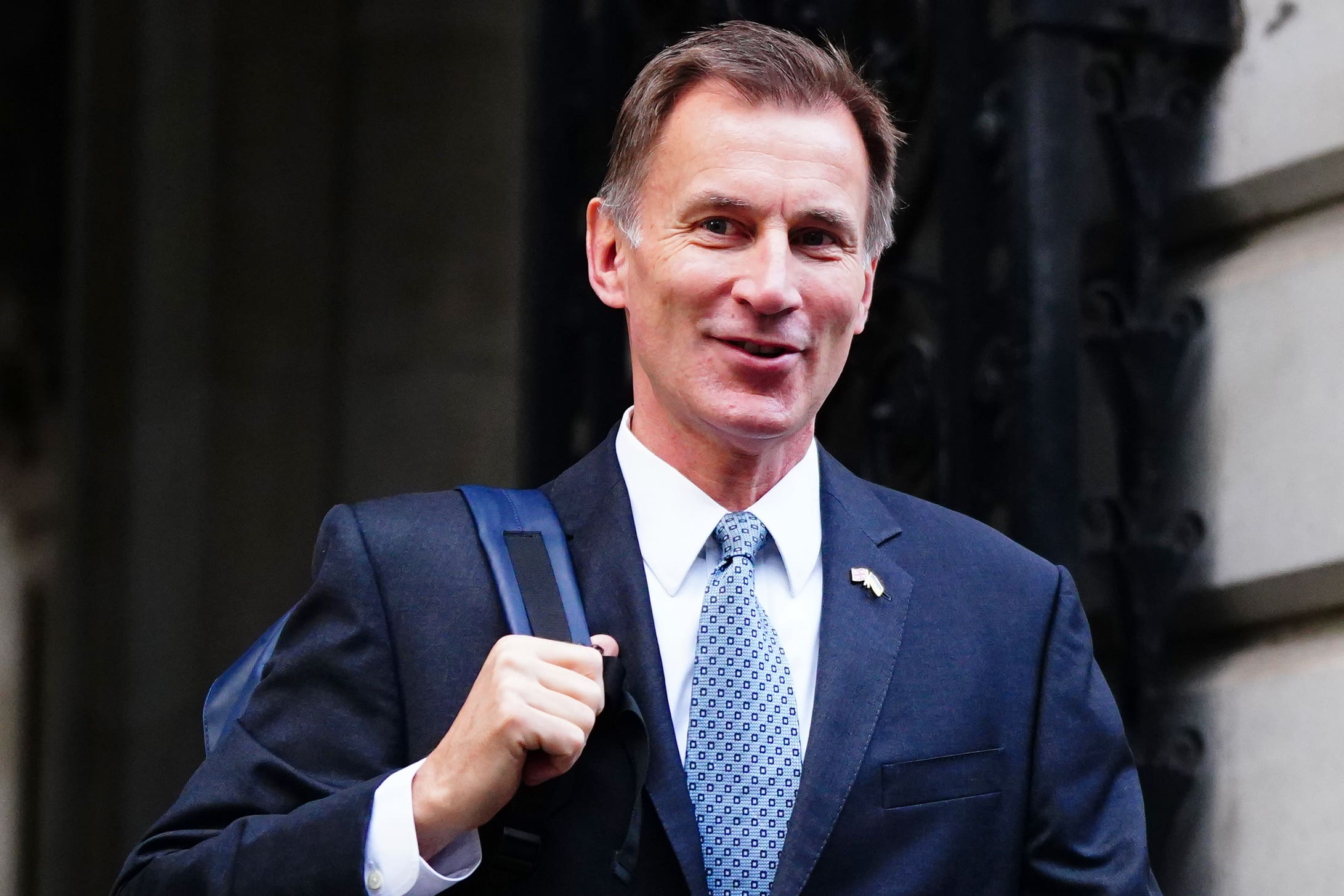
Homeowners faced a fresh blow after higher than expected inflation raised fears interest rates could hit 5 per cent.
Mortgage holders have been hit by a series of interest rate rises as the Bank of England attempts to bring spiralling price increases under control.
Interest rates – which dictate the cost of borrowing – are currently at 4.25 per cent. They were expected to peak at 4.5 per cent and fall back toward more normal levels next year. But after the Office for National Statistics said inflation in March remained in the double digits – defying economists’ forecasts it would dip to 9.8 per cent – traders ramped up bets interest rates would rise.
The central Bank’s monetary policy committee was already expected to push the rate up to 4.5 per cent next month. Now markets expect the level to reach 5 per cent by the autumn.
The shock figure also raised questions about Rishi Sunak’s promise to halve inflation by the end of the year. The prime minister has made it one of his five key priorities for 2023 to bring inflation under control to “ease the cost of living and give people financial security”.
No 10 said the inflation figures were an “important illustration why we need to stay the course” including wage restraint. Downing Street also said that high food inflation prices – a significant driver of inflation – were not “unique” to the UK.
Inflation fell slightly to 10.1 per cent in March but was higher than economists had predicted as households across the country continue to grapple with sky-high prices amid the cost of living squeeze.
The Office for National Statistics said the dip to 10.1 per cent was due to lower petrol prices but this was offset by stubbornly high food prices, with bread and cereal prices at record levels.
Grant Fitzner, ONS chief economist, said: “The main drivers of the decline were motor fuel prices and heating oil costs, both of which fell after sharp rises at the same time last year.
“Clothing, furniture and household goods prices increased, but more slowly than a year ago.
“However, these were partially offset by the cost of food, which is still climbing steeply, with bread and cereal price inflation at a record high.”
The ONS revealed food prices increased by 19.1 per cent year-on-year, the sharpest jump since August 1977.
Bread, cereals and fruit prices increased, while the impact of vegetable shortages also continued to weigh on inflation.
Meanwhile, clothing and footwear prices rose by 7.2 per cent year on year, although this represented a slight slowdown against February’s data.
Restaurant and hotel prices also continued to rise, at 11.3 per cent, but also saw inflation cool from the previous month.
Increases were partly offset by lower fuel costs, with petrol and diesel costs down 5.9 per cent against the same month last year after prices had spiked following Russia’s invasion of Ukraine.
In an interview with BBC Radio 4’s Today programme after the figures were published, Mr Fitzner said that, globally, food prices were falling but this had not yet fed through to price cuts in shops and supermarkets.
“There’s been some strong upward movement in food prices and you would expect to see that reflected in supermarkets but we’re not there yet,” he said.

Mr Fitzner added that it was possible that food prices could continue to rise for at least one more month.
"We’re at 19.1 per cent so it’s possible. Germany saw their food prices up 22.3 per cent and there’s quite a number of European countries who’ve seen higher rises than the UK, so it is certainly within the realm of possibility but we don’t forecast this."
Kevin Bright, of McKinsey and Company, said that falling energy prices contributed to the dip in March but that the cost of other goods was “accelerating”.
“While some price rises are slowing, others are accelerating – food and non-alcoholic beverages prices are running at near record levels with prices up 19.1 per cent year on year.
“And this continues to influence purchasing behaviour, pushing the ongoing migration from fresh to frozen. For example, fresh fish prices are up 19 per cent year on year, compared to frozen seafood up 12.2 per cent year on year.”
He added: “Some categories are settling into mid-single digit inflation levels. But food and non-alcoholic beverages, housing and household services and restaurants and hotels remain at double-digit levels.”

Mr Bright also warned that “sluggish growth” and high-interest rates continue to put downward pressure on business profits.
“This is bearing through in business confidence, with our new research showing 56 per cent of UK B2B organisations believe they’ll be worse off due to the impending macroeconomic climate,” he said.
Kitty Ussher, chief economist at the Institute of Directors, said: “Business remains extremely concerned by the rate of inflation and wants to see it under control.
“While it is a relief that the headline rate of inflation is now pointing downwards again, following the surprise rise last month, the Bank of England’s job is not yet done.”
Last month the Bank of England, which is tasked with controlling inflation, raised interest rates to 4.25 per cent in a bid to tackle sky-high prices.
The Bank’s previously said there were signs inflation was peaking, increasing expectations it could pause rate hikes.
Rachel Reeves, the shadow chancellor, said: “When will families feel better off under the Tories? Under them, our economy is weaker, prices are out of control and people are paying so much to get so little in return.”
Jeremy Hunt, the chancellor, admitted that having inflation that high was “dangerous” and “destabilising” for the economy.
Interviewed by the Politico website, he said that when inflation is above 10 per cent “it is destabilising for the economy… it is dangerous if you leave it there.”
He added that ministers had ministers “nailed our colours to the mast’’ in saying they would halve inflation by the end of the year.







